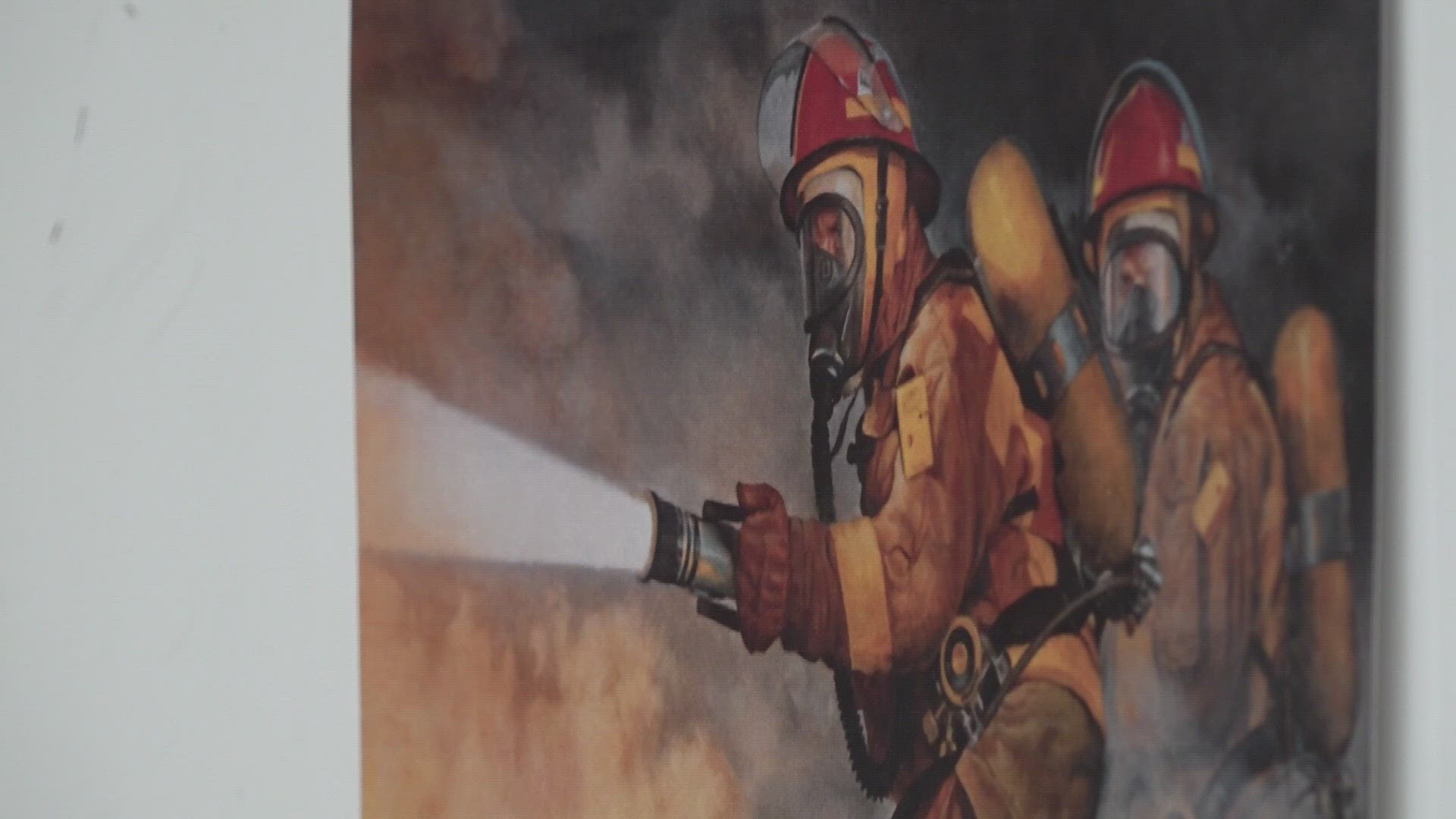KNOXVILLE, Tenn. — On Jan. 1, the James "Dustin" Samples Act went into effect across Tennessee. The law effectively expanded the Worker's Compensation program in the state to cover Post-Traumatic Stress Disorder related to firefighters who suppress fires, perform rescue services, or offer other emergency response services "for or without pay." The law does not include volunteer firefighters.
It requires the state to create a grant program to help fund the expanded Worker's Compensation Law. Fire departments that develop training courses for mental health awareness would be eligible for the grant program.
Firefighters would also only be eligible for benefits to treat PTSD if they faced trauma as part of the job. For example, they would be eligible if they witnessed the death or injury of a minor, or if a minor dies at a hospital or while en route to a hospital.
"For it to be passed this year, go into effect, it's gonna help a lot of firefighters across the state," said Chris Hinkle, Vice President of the Knoxville Firefighters Association.
It opened the door for firefighters to get worker's compensation benefits to help treat PTSD. The law is named after a Cleveland, Tennessee firefighter who died by suicide after battling work-related PTSD,
"Tennessee is taking a step forward to start addressing these items before they have the tragic outcomes that Dustin Samples had," said Chief Lee Turner with the Jefferson City Fire Department. "Over time, these tragedies, it's just some people are seeing on a daily basis are allowed to accumulate and affect the individual firefighter's mental health."
A study showed that around 100 firefighters kill themselves per year. The law said incidents causing PTSD can include incidents like witnessing the death of a minor or seeing a victim with serious bodily injury, or a victim who died.
"A lot of the stuff that you see, calls that involve children, maybe a call with your family member or a co-worker, something tragic happened to them on a fire scene or in a wreck. Those are the things that you keep thinking about," said Hinkle.
The law also requires departments to complete reports analyzing the number of PTSD treatment claims, along with the costs of those claims. Implicitly, it also helps show firefighters that they do not need to suffer in silence.
"I'd be very proud of them for stepping forward and identifying that they do have a problem, or a perceived problem, and seeking help for that," said Turner.

